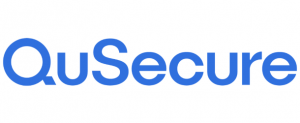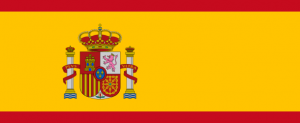
IQM Quantum Computers (IQM) has launched “IQM Spark,” comprising a superconducting quantum computer and tailored learning experiences for universities and research labs worldwide. Quantum News Briefs summarizes the August 31 announcement.
IQM Spark comes pre-installed with a 5-qubit quantum processing unit, with more options available allowing for a wide variety of research experiments.
To help universities kick-start their quantum program, in addition, universities will have free maintenance for one year, and IQM will also provide training for running the system and learning materials accessible through IQM Academy, a user-friendly online platform. With IQM Spark, students of all levels (bachelor, master, and PhD) will have the opportunity to learn hands-on about quantum computing.
Additionally, universities can also provide their students with the skillset needed for a quantum-enabled future by leveraging both hardware and software within the learning materials. With its technical track record and world-class expertise, IQM is also committed to collaborating with universities to drive advancements in quantum science.
Dr. Kuan Yen Tan, Chief Technology Officer and Co-founder of IQM Quantum Computers, said: “Since our inception, we’ve invested in and promoted quantum education and the advancement of research, and it’s apparent that universities around the globe need critical tools like IQM Spark to train the workforce needed for the next generation. Given the potential of quantum computing, the ecosystem will require a wide range of talent across electronics, chip fabrication, hardware design, and software engineering. We are confident that our system will facilitate the learning experience and engage students with the physical system.”
“We’ve designed this offering for universities and research labs to build up their quantum expertise and we believe that our system will not only perform fundamental quantum experiments and raise interest in Science, Technology, Engineering, and Mathematics (STEM) but we will also advance university science around quantum computing in general, while addressing the shortage of talent and providing value for the job market,” Dr. Björn Pötter, Head of Product at IQM Quantum Computers, points out.
IQM has already delivered 5-qubit quantum computers to some universities and research institutions, including the VTT Technical Research Centre of Finland and the Leibniz Supercomputing Centre in Germany. The quantum computer at VTT has been connected to LUMI, Europe’s most powerful supercomputer, hosted by the CSC – IT Center for Science.
“VTT and IQM successfully collaborated in delivering Finland’s first quantum computer in 2021. The 5-qubit quantum computer enables users to take the first steps in developing quantum algorithms and learn how to utilise the new technology in practice”, said Pekka Pursula, Research Manager in Quantum Technologies at VTT. Click here to read announcement in-entirety.
QuSecure named Commercial Capabilities Showcase Winner by Air Force Global Strike Command & Small Business Consulting Corporation
 Q
Q
QuSecure™, Inc. announced on August 30 it has been named a winner in the annual Commercial Capabilities Showcase award competition by the Air Force Global Strike Command (AFGSC) and the Small Business Consulting Corporation (SBCC). Quantum News Briefs summarizes.
Earning recognition and a signed Phase I Letter of Support from the AFGSC, the win gives QuSecure a competitive advantage for future business, including important Department of Defense (DoD) contracts and Small Business Innovation Research (SBIR) opportunities. Additionally, the award grants QuSecure access to strategic networking consultations with SBCC and relevant government stakeholders across the DoD. SBCC’s continued support will help QuSecure get its technology in the hands of the operators as well as navigate requirements, contracts, government acquisitions, and operations to help align all the critical players and find continued success in the defense market.
QuSecure was selected as the winner from a field of 57 different companies. AFGSC evaluators noted about QuSecure’s submission: “Overall, a compelling proposal. Qualified technical and business teams with good commercialization groundwork. Clear understanding of DoD security approval processes.”
The competition included a white paper round as well as live pitch presentations to the AFGSC, SBCC, AFGSC Commercial Capabilities Integration & Transitioning Division (CCIT), the Entrepreneurial Accelerator Program (EAP), and the Innovation Enterprise at Louisiana Tech University. As an additional showcase perk, QuSecure has the ability to work with EAP for consultation and advisement on its commercial goals.
AFGSC has a critical mission to provide strategic deterrence, global strike, and combat support.
The Commercial Capabilities Showcase is an opportunity for companies to debut their technology and connect with AFGSC decision makers. All applicants receive feedback from AFGSC evaluators, comprised of a combination of technical subject matter experts and real operators. Selected finalists pitch their innovation to a panel of AFGSC and SBCC leaders at the showcase event, with the option to pitch virtually or in person in Shreveport, La. SBCC supports companies and technologies of interest to AFSGC by helping them identify funding and transition pathways to enable the fielding of valuable commercial solutions, and enhancing their ability to achieve recurring revenue in the defense marketplace. Click here to read complete announcement in QuSecure newsroom.
Quantum Spain welcomes 14 new institutions

Spain’s prominent Quantum Spain project is expanding its reach. Championed by the Spanish Ministry of Economic Affairs and Digital Transformation and coordinated by the Barcelona Supercomputing Center (BSC-CNS), this initiative aims to build a robust quantum computing ecosystem in the nation. Quantum News Briefs summarizes recent announcement.
This endeavor recently gained momentum with 14 new universities and research centers joining its ranks. Noteworthy among them are the Universitat de Barcelona, Universitat Autònoma de Barcelona, and Universidad Complutense de Madrid. These new partners bring the project’s total participant count to 27, all dedicated to elevating Spain’s position in the global quantum computing landscape.
Central to their role is the development of pioneering quantum algorithms, especially those that intersect with Artificial Intelligence. Quantum Machine Learning stands as a crucial component in this intersection. The Barcelona Supercomputing Center (BSC-CNS) will oversee the testing of these algorithms on quantum machines procured for the project.
“The entities with which we have signed the agreement represent the most outstanding and pioneering research groups in quantum computing in Spain. Their incorporation is fundamental for the promotion of a cutting-edge national ecosystem and the development of a solid scientific and technological fabric to which we aspire in Quantum Spain,” commented Alba Cervera, researcher at the BSC-CNS and coordinator of Quantum Spain.
In addition to algorithm development and testing, these new institutions will be instrumental in educational outreach. A highlight here is the TalentQ program, aimed at fostering and honing Spanish quantum talent. Coordinated by the University of Santiago de Compostela, the program will roll out a mix of online and in-person courses. Click here to read August 31 announcement in-entirety.
UCLA receives $1 million NSF grant to develop quantum sensors

A team of UCLA researchers has received a four-year, $1 million grant from the National Science Foundation’s Quantum Sensing Challenges for Transformational Advances in Quantum Systems program. The funds will support research on new sensor technologies that can precisely measure the previously unmeasurable.
Led by Prineha Narang, a UCLA professor of chemistry and biochemistry who holds the Howard Reiss Career Development Chair, the investigators will use quantum sensors to measure and understand atmospheric and aerosol chemistries that standard atmospheric sensors cannot detect. The particles contribute to poor air quality and climate change, and improved monitoring could help scientists identify better ways to clean up the air.
The other investigators include Suzanne Paulson, department chair of atmospheric and oceanic sciences; Andrea Bertozzi, a UCLA distinguished professor of mathematics and of mechanical and aerospace engineering; colleagues at the UCLA Samueli School of Engineering; and Sunil Bhave of Purdue University. Together, they will aim to develop a network of sensors that take advantage of the unique behaviors of subatomic matter to observe atmospheric chemistry in real time by detecting minute quantities of particles or even single molecules of atmospheric constituents such as ammonia, nitrogen oxides and organic hydroperoxides.
Grant support for the UCLA project is aligned with the NSF’s broader strategy, backed by a $29 million investment nationwide, to realize the scientific and technological advances called for in the National Quantum Initiative Act of 2018 and outlined in the 2022 National Science and Technology Council report “Bringing Quantum Sensors to Fruition.” Click here to read original article in-entirety on UCLA site.
Sandra K. Helsel, Ph.D. has been researching and reporting on frontier technologies since 1990. She has her Ph.D. from the University of Arizona.
- SEO Powered Content & PR Distribution. Get Amplified Today.
- PlatoData.Network Vertical Generative Ai. Empower Yourself. Access Here.
- PlatoAiStream. Web3 Intelligence. Knowledge Amplified. Access Here.
- PlatoESG. Automotive / EVs, Carbon, CleanTech, Energy, Environment, Solar, Waste Management. Access Here.
- PlatoHealth. Biotech and Clinical Trials Intelligence. Access Here.
- ChartPrime. Elevate your Trading Game with ChartPrime. Access Here.
- BlockOffsets. Modernizing Environmental Offset Ownership. Access Here.
- Source: https://www.insidequantumtechnology.com/news-archive/quantum-news-briefs-september-1-iqm-quantum-computers-launches-iqm-spark-for-universities-labs-qusecure-named-commercial-capabilities-showcase-winner-by-air-force-global-strike-c/
- :has
- :is
- :not
- $1 million
- $UP
- 1
- 14
- 2018
- 2021
- 2022
- 27
- 30
- 31
- 7
- a
- ability
- About
- About Quantum
- accelerator
- accelerator program
- access
- accessible
- Achieve
- acquisitions
- across
- Act
- addition
- Additional
- Additionally
- addressing
- advance
- advancement
- advancements
- advances
- ADvantage
- Aerospace
- Affairs
- Agreement
- aim
- aimed
- aims
- AIR
- Air Force
- algorithm
- algorithms
- align
- aligned
- All
- Allowing
- already
- also
- among
- an
- and
- announced
- Announcement
- annual
- apparent
- applicants
- approval
- ARE
- arizona
- around
- article
- artificial
- artificial intelligence
- AS
- aspire
- At
- atmospheric
- AUGUST
- available
- award
- backed
- barcelona
- BE
- been
- behaviors
- believe
- Better
- both
- bring
- broader
- build
- business
- but
- by
- called
- CAN
- cannot
- capabilities
- Career
- Center
- Centers
- centre
- Chair
- challenges
- championed
- change
- chemistry
- chief
- chief technology officer
- chip
- clear
- Climate
- Climate change
- Co-founder
- collaborated
- collaborating
- colleagues
- combat
- combination
- comes
- commented
- commercial
- commercialization
- committed
- Companies
- compelling
- competition
- competitive
- complete
- component
- Comprised
- comprising
- computer
- computers
- computing
- confident
- Connect
- connected
- consultations
- consulting
- continued
- contracts
- contribute
- coordinated
- Coordinator
- CORPORATION
- could
- Council
- courses
- critical
- crucial
- cutting-edge
- debut
- decision
- dedicated
- Defense
- delivered
- delivering
- Department
- department of defense
- Design
- designed
- detect
- develop
- developing
- Development
- different
- digital
- Digital Transformation
- Distinguished
- Division
- dr
- drive
- Economic
- ecosystem
- Education
- educational
- Electronics
- elevating
- enable
- enables
- endeavor
- engage
- Engineering
- enhancing
- Enterprise
- entities
- entrepreneurial
- especially
- Europes
- Even
- Event
- expanding
- experience
- Experiences
- experiments
- expertise
- experts
- fabric
- facilitate
- feedback
- field
- finalists
- Find
- Finland
- First
- first steps
- For
- Force
- fostering
- Free
- from
- Frontier
- fruition
- fundamental
- funding
- funds
- future
- gained
- General
- generation
- Germany
- get
- given
- gives
- Global
- globe
- Goals
- good
- Government
- grant
- grants
- groundwork
- Group’s
- Hands
- hands-on
- Hardware
- hardware design
- Have
- head
- help
- helping
- her
- here
- Highlight
- holds
- hosted
- How
- How To
- http
- HTTPS
- i
- identify
- important
- improved
- in
- in-person
- Inc.
- inception
- include
- included
- Including
- Initiative
- Innovation
- inside
- Inside Quantum Technology
- institutions
- instrumental
- integration
- Intelligence
- interest
- intersection
- invested
- Investigators
- investment
- IQM
- IQM Quantum Computers
- IT
- ITS
- Job
- joining
- jpg
- Labs
- landscape
- launched
- launches
- leaders
- LEARN
- learning
- letter
- levels
- leveraging
- like
- live
- Louisiana
- machine
- machine learning
- Machines
- maintenance
- Makers
- manager
- Market
- marketplace
- master
- materials
- mathematics
- Matter
- max-width
- measure
- mechanical
- million
- ministry
- minute
- Mission
- mix
- Momentum
- monitoring
- more
- most
- Named
- nation
- National
- National Science
- Nationwide
- Navigate
- Need
- needed
- network
- networking
- New
- news
- next
- noted
- noteworthy
- NSF
- observe
- of
- offering
- Officer
- on
- ONE
- online
- only
- Operations
- operators
- opportunities
- Opportunity
- Option
- Options
- or
- organic
- original
- Other
- our
- out
- outlined
- outreach
- outstanding
- oversee
- panel
- Paper
- partners
- Perform
- person
- phase
- phd
- physical
- Pioneering
- Pitch
- platform
- plato
- Plato Data Intelligence
- PlatoData
- players
- points
- poor
- position
- potential
- powerful
- precisely
- Presentations
- previously
- processes
- processing
- Product
- Professor
- Program
- project
- projects
- prominent
- Promoted
- promotion
- proposal
- provide
- providing
- qualified
- quality
- Quantum
- quantum algorithms
- Quantum Computer
- quantum computers
- quantum computing
- quantum education
- quantum machine learning
- Quantum Program
- Quantum sensors
- quantum systems
- quantum technology
- raise
- range
- ranks
- reach
- Read
- real
- real-time
- realize
- receive
- received
- receives
- recent
- recently
- recognition
- record
- recurring
- relevant
- report
- Reporting
- represent
- require
- Requirements
- research
- Research Institutions
- researcher
- researchers
- revenue
- robust
- Role
- Roll
- round
- running
- Said
- SBIR
- School
- School of Engineering
- Science
- Science and Technology
- SCIENCES
- scientific
- scientists
- security
- selected
- sensors
- September
- she
- shortage
- showcase
- signed
- since
- single
- site
- skillset
- small
- small business
- Software
- software engineering
- solid
- Solutions
- some
- Spain
- Spanish
- Spark
- stakeholders
- standard
- stands
- Stem
- Steps
- Strategic
- Strategy
- strike
- Students
- subject
- submission
- success
- Successfully
- such
- supercomputer
- Supercomputing
- superconducting
- support
- Supports
- system
- Systems
- tailored
- Take
- Talent
- team
- teams
- tech
- Technical
- technological
- Technologies
- Technology
- Testing
- that
- The
- their
- Them
- These
- they
- this
- those
- Through
- time
- to
- together
- tools
- Total
- track
- track record
- Train
- Training
- Transformation
- transformational
- transition
- transitioning
- ucla
- understand
- understanding
- unique
- unit
- Universities
- university
- use
- user-friendly
- users
- Valuable
- value
- variety
- virtually
- was
- ways
- we
- Welcomes
- WELL
- which
- while
- white
- white paper
- WHO
- wide
- Wide range
- will
- win
- winner
- with
- within
- Work
- Workforce
- world-class
- worldwide
- year
- Yen
- zephyrnet













